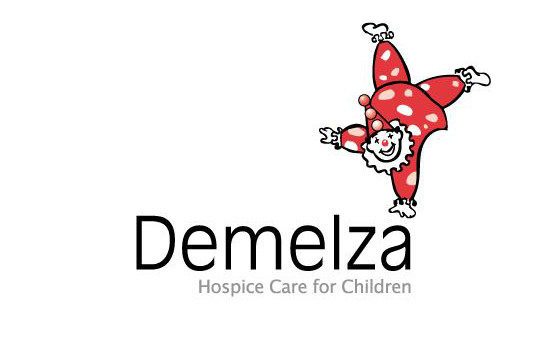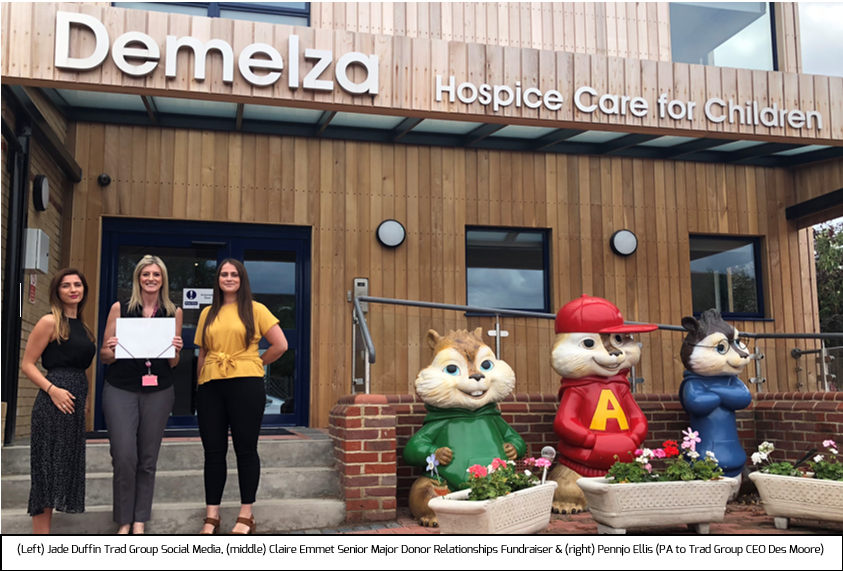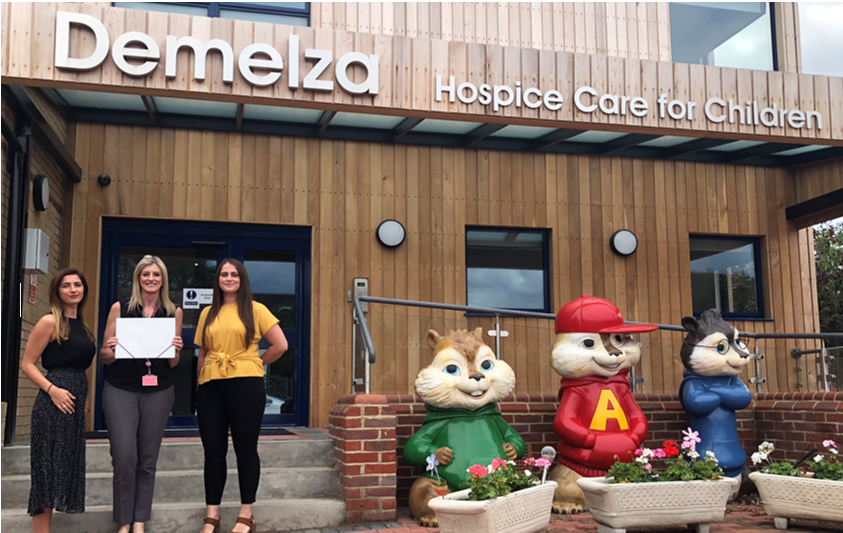Not All Heroes Wear Capes
By Jade Duffin
When attending the Demelza Hospice on Friday 17th August I didn’t quite know what to expect; the words ‘children hospice’ automatically make you think “brace yourself, this may be a little doom and gloom”, however, to my surprise when we arrived at the Eltham Hospice we were greeted by a beautiful cladded building with 3 Disney chipmunk characters outside and I knew that here people cared deeply about the children and wanted to make their lives bright.
My colleague, Pennyjo, and I met with Clare Emmet (Senior Major Donor Relationships Fundraiser) for a guided tour of the facilities to show us first-hand the positive impact of their work whilst donating a prize for their upcoming ball this September from the TRAD GROUP, to help raise crucial funds for Demelza Hospice Care for Children.

We were lucky to attend the Hospice on a fairly quiet afternoon where a nurse was happy to be our guide looking at the activities they do in each room, explaining the vast benefits and costs for the much needed equipment. The first room we entered was a music room (the utmost popular room of them all), full of instruments, a water bed, interchangeable disco lights and everything was tailor made for the children not only to hear but to use all their senses; this is where they teach the children through music (music therapy).
This was just one of the many creative play areas; the hospice had an arts and craft room, ball pits, play mats, TV’s as well as stimulating Lights (especially useful for children with autism) to have when they want a calm setting.

Everything in the bathroom and bedrooms are made bespoke for the various children’s needs; equipped with a hoist to help the nurse’s move the children from their bed to the bath, all of which comes at a “pretty penny”.
The exceptional care Demelza offer the families ranges from counselling, after care, rooms for the children, parents and siblings to stay, simply trying to be as flexible and attentive to the family’s needs. Sadly funerals have to be arranged but this is done with grace and care.
The hospice isn’t just a place for children to go and pass, it is also for families to have support, siblings to have fun and many days out (organised by the team), or simply for the parents to have a respite period.
The nurses work 12 hour shifts with a rotation of days and nights so there is 24 hour care, having breakfast, lunch and dinner with the children; each nurse takes on a role within the hospice such as organising the games and themed weeks to ensuring all the prescription are correctly ordered the nurse said “and as you can imagine some children are taking up to 30 tablets a day” However, there is a huge demand for more nurses! The House of Commons Health Committee says “Since 2010 there has been a 1% increase in nurses and health visitors working in the NHS (1,653); however, the increase in nurses has not kept pace with the increase in doctors (12%), consultants (27%) or the population (5.7%).”
There has also been an increase in the complexity and severity of the conditions for which people are receiving treatment Clare says.
If you look back at the type of patients we had when we first opened Demelza [in 1998] compared to now there is a vast difference, mostly due to the advances in medicine.
It was clear to see the hard work and devotion put into the hospice and how rewarded the nurses felt; however, they needed more funding for the everyday needs Clair went on to say “Most donors like to contribute towards something physical which is great but where we really need to raise money is for the general pot” This allows the charity to choose where the money is most needed at the time – such as more staff, facilities and days out for the children.
I was incredibly impressed by their creativity and the positivity in the air; the impact of their work was clear to see. The Demelza team is composed of more than 100 volunteers and are able to provide the best care, thanks to the supporters’ donations, Moreover, they are committed to equality of opportunity and doing their best to ensure the needs of the terminally ill children by helping people from all cultures.
To find out more about Demelza and Donate go to
www.demelza.org.uk

